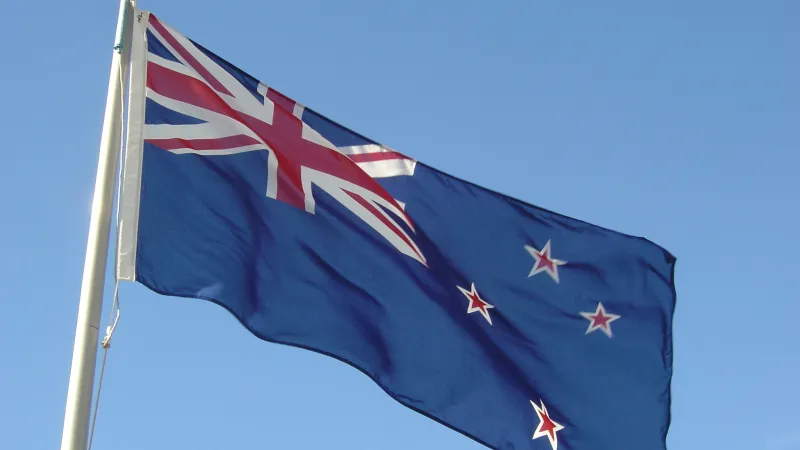What’s New in Principles Governing Arbitral Costs in New Zealand?
November 25, 2025
In this article, the authors comment upon a recent decision of the High Court of New Zealand (“High Court”), McCracken v Boyer [2025] NZHC 546 (“McCracken”), concerning a challenge to an arbitral cost award, that was discussed at the annual Arbitrators’ and Mediators’ Institute of New Zealand’s Arbitration Day 2025. While McCracken is a first instance decision, it confirms the general principles governing arbitral costs awards in New Zealand set out in a previous High Court decision of StockCo Limited v The Big Basin Limited [2024] NZHC 2438 (“StockCo”).
StockCo: General Approach to Arbitral Costs in New Zealand
Background
The applicant, StockCo, is a livestock financier which funded the purchase of bulls pursuant to a master livestock agreement (“Master Agreement”) and a related supplementary agreement (“Supplementary Agreement”) with the respondent, Big Basin. A dispute arose when Big Basin defaulted on its obligations, leading StockCo to terminate the Master Agreement. The parties then referred the dispute to ad hoc domestic arbitration under the New Zealand Arbitration Act 1996 (the “Act”).
The principal issue in dispute was whether Big Basin was liable for an alleged debt relating to the bulls. Big Basin denied liability on the basis that it had not received the bulls in question and that StockCo had not proven delivery as required under bailment principles. StockCo, on the other hand, denied the need to prove delivery.
StockCo succeeded on the principal issue, with the arbitrator finding that the Agreements did not require delivery to be proved, while Big Basin had some success on lesser issues with regard to the “duplicate bulls, the heifers, and credits derived from processing”.
StockCo was also granted costs, but at a reduced amount from what it had claimed. In assessing costs, the arbitrator noted that:
- Each party’s relative levels of success, and each party’s conduct in pursuing the arbitration including the fact that the arbitration had been “driven by a false narrative on Big Basin’s part about bulls not being delivered”;
- StockCo had contributed in part to the uncertainty underlying the factual dispute for determination in the arbitration due to shortcomings in its systems and records; and
- StockCo’s costs had been disproportionate to the issues in dispute, with StockCo incurring total costs worth about 70% of its total claim.
High Court Decision
The costs award was appealed to the High Court, which took the opportunity to set out the general principles in New Zealand on awarding costs in arbitration, as described in Williams and Kawharu on Arbitration, one of the leading New Zealand textbooks on arbitration. In summary, the general principles are:
- A tribunal has a wide discretion in awarding costs;
- The basic principle is that costs follow the event, and a costs award should reflect an outcome that is reasonable in the circumstances; and
- Primary considerations for a reasonable contribution to costs include:
- the successful party should receive at least a reasonable contribution to its legal and other costs, if not the whole, a very substantial part;
- a tribunal may take into account the parties’ conduct (including any disentitling conduct of the successful party);
- the costs claimed must be reasonable in the first place; and
- costs should reflect the parties’ relative success and failure.
The High Court upheld the arbitrator’s decision on costs, describing it as being “entirely in order”.
McCracken: High Court Rules Scale Costs Have No Applicability to Costs in Arbitration
Background
The McCracken case also involved an ad hoc domestic arbitration conducted under the Act. The arbitration was between two neighbours, the Boyers and Ms McCracken, over a property’s flats plan and their cross-leases. It also spawned extensive procedural disagreements, which resulted in 13 different procedural orders being issued before the substantive award was handed down.
The Boyers were largely successful in the arbitration against Ms McCracken. Following the substantive award, the Boyers sought indemnity costs.
However, the arbitrator declined to award indemnity costs. She further noted that the costs principles set out in Rule 14 of the High Court Rules (“HCRs”) were not applicable to awards of costs in arbitration. Rule 14 provides for scale costs in High Court proceedings, and refers to the schedules to the HCRs which prescribe fixed amounts for different steps in court proceedings, with different rates and multipliers depending on a case’s complexity and value. Instead, the arbitrator awarded the Boyers two thirds of their claimed actual legal fees, the costs of the arbitration, and 50% of their expert costs.
High Court Decision
Dissatisfied, Ms McCracken challenged the costs award in the High Court. A core part of her argument was that the arbitrator, when determining the costs of the arbitration, should have applied the costs principles that would have been applied by the High Court under Rule 14 of the HCRs. Ms McCracken also argued that the arbitrator failed to assess the reasonableness of the Boyers’ actual legal costs.
The High Court applied the general principles on arbitral costs awards set out in StockCo. It further held that while an arbitral tribunal may, at its discretion, consider scale costs under the HCRs, or may be required to do so under an arbitration agreement, absent such a term, it is not obliged to take scale costs into account.
Accordingly, the Judge rejected Ms McCracken’s challenge. We note the following key points:
- As previously indicated in earlier New Zealand cases, including StockCo, scale costs under the HCRs are not a mandatory consideration when determining costs in an arbitration and can be disregarded. Rather, an arbitrator has discretion as to whether they have any regard to scale costs.
- An arbitrator has an entitlement to award recovery of full and actual costs if appropriate. In practice, in New Zealand it is not unusual for arbitrators to award about 75–85% of a successful party’s actual costs.
- Where an arbitrator’s decision on costs is made on a principled basis and is within reasonable grounds, as was the case in McCracken, it is beyond the proper scope of an appeal for the High Court to make its own assessment on issues of the weight which the arbitrator gave, or should have given, to various factors.
Commentary
The High Court’s decisions in StockCo and McCracken on the non-applicability of the HCRs to the question of costs in arbitration reflect the orthodox approach in New Zealand. It is nevertheless helpful to have the point clearly confirmed by one of New Zealand’s senior courts.
Practitioners should note that, particularly when presenting arguments aimed at reducing the amount of costs sought by the successful party, referring to what the comparable costs order would have been under the HCRs is only a factor that an arbitrator may take into account when assessing the reasonableness of the costs sought. However, the arbitrator is not required to take this into account and, even if they do, it is unlikely to be determinative. It is therefore not a factor that ought to be given any special weight.
Both StockCo and McCracken also serve as a useful reminder of the high bar that an applicant faces when seeking to challenge an arbitral costs award in New Zealand. Clause 6(3) of Schedule 2 of the Act provides that the Court may vary a costs award if satisfied that the amount or allocation of those costs is “unreasonable in all the circumstances”. Both cases note that unreasonableness in this context requires the allocation of costs to have been “irrational” – an allocation “that no reasonable arbitral tribunal could have made”. Because the allocation of costs is an exercise of the arbitrator’s discretion, the High Court will not intervene and carry out its own assessment of the weight that the arbitrator gave to various issues, provided that the arbitrator made its decision on a principled and reasonable basis. This reinforces the expectation of finality of an arbitrator’s decision.
McCracken also illustrates the different practical outcomes on costs that are likely to arise in arbitration versus court proceedings. As a rule of thumb, a successful party in arbitration in New Zealand may recover a much higher proportion of their actual costs than they would in court proceedings. This highlights access to justice factors that can be viewed as cutting both ways. For example, a potential claimant in arbitration proceedings may consider, when assessing their potential net financial position if they achieve a successful outcome, the prospect of receiving a much higher proportion of their actual costs from the defendant. Conversely, a potential claimant with a genuine but uncertain claim may be put off initiating arbitration proceedings due to the risk of higher adverse cost exposure in the event their claim is ultimately unsuccessful.
These two decisions reinforce the distinction, in both theory and procedure, between arbitration and litigation in New Zealand. It is a mistake to conflate the two, or to assume that the rules applicable to litigation apply to arbitration. In our opinion, the procedural flexibility offered by arbitration (including the power to award costs at levels potentially higher than those available under the HCRs) is a significant advantage for many parties who choose arbitration.
You may also like











